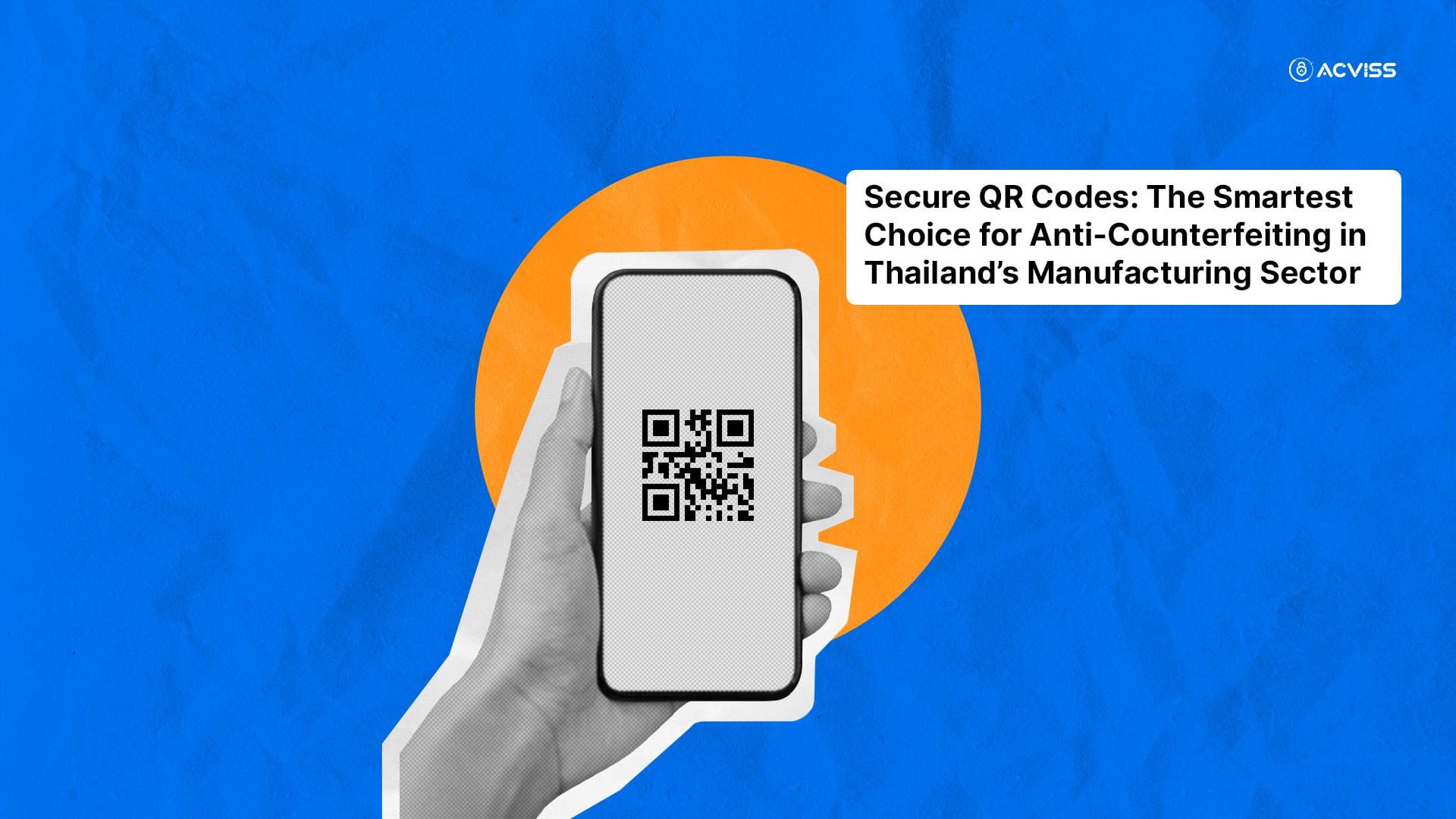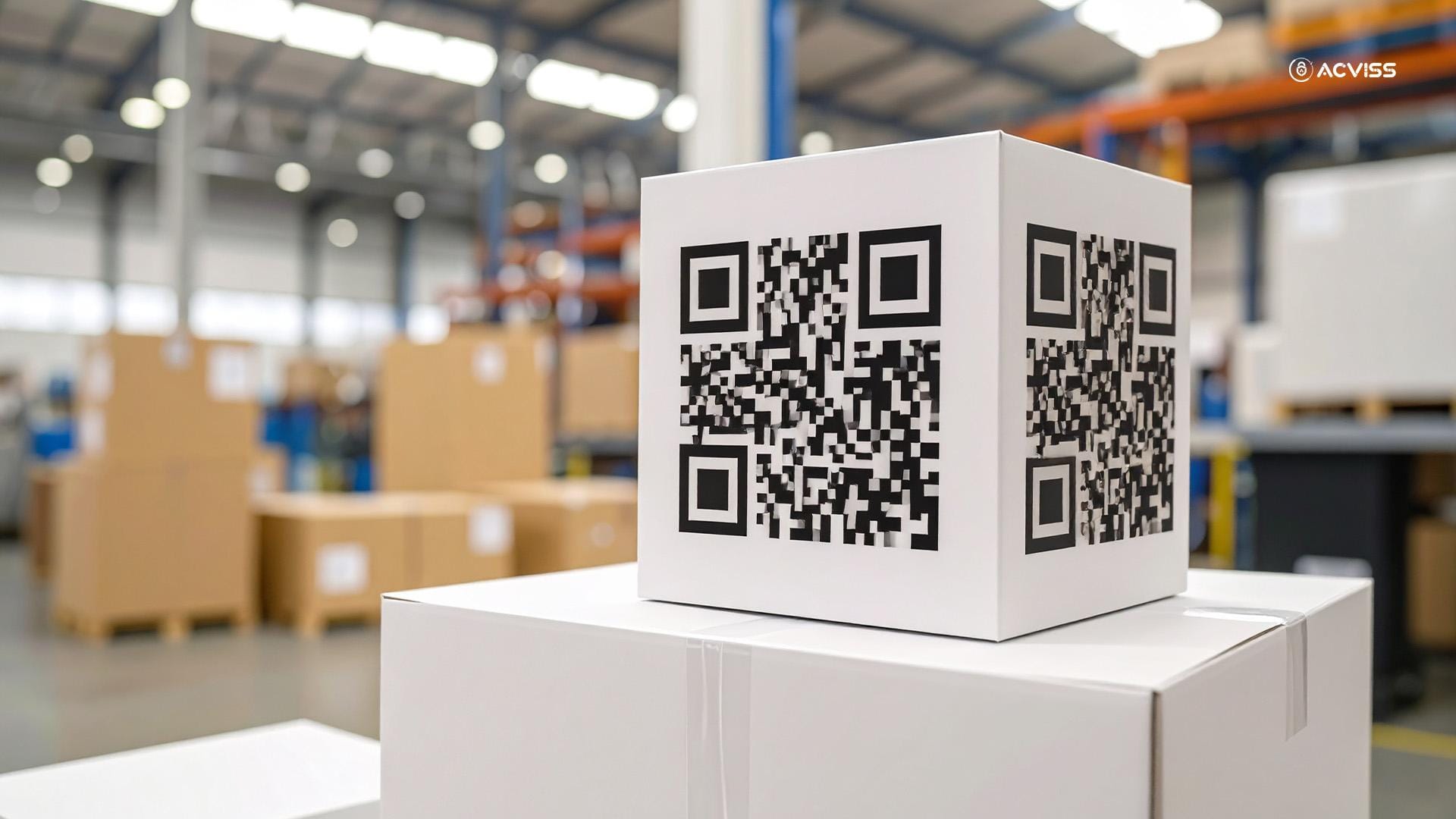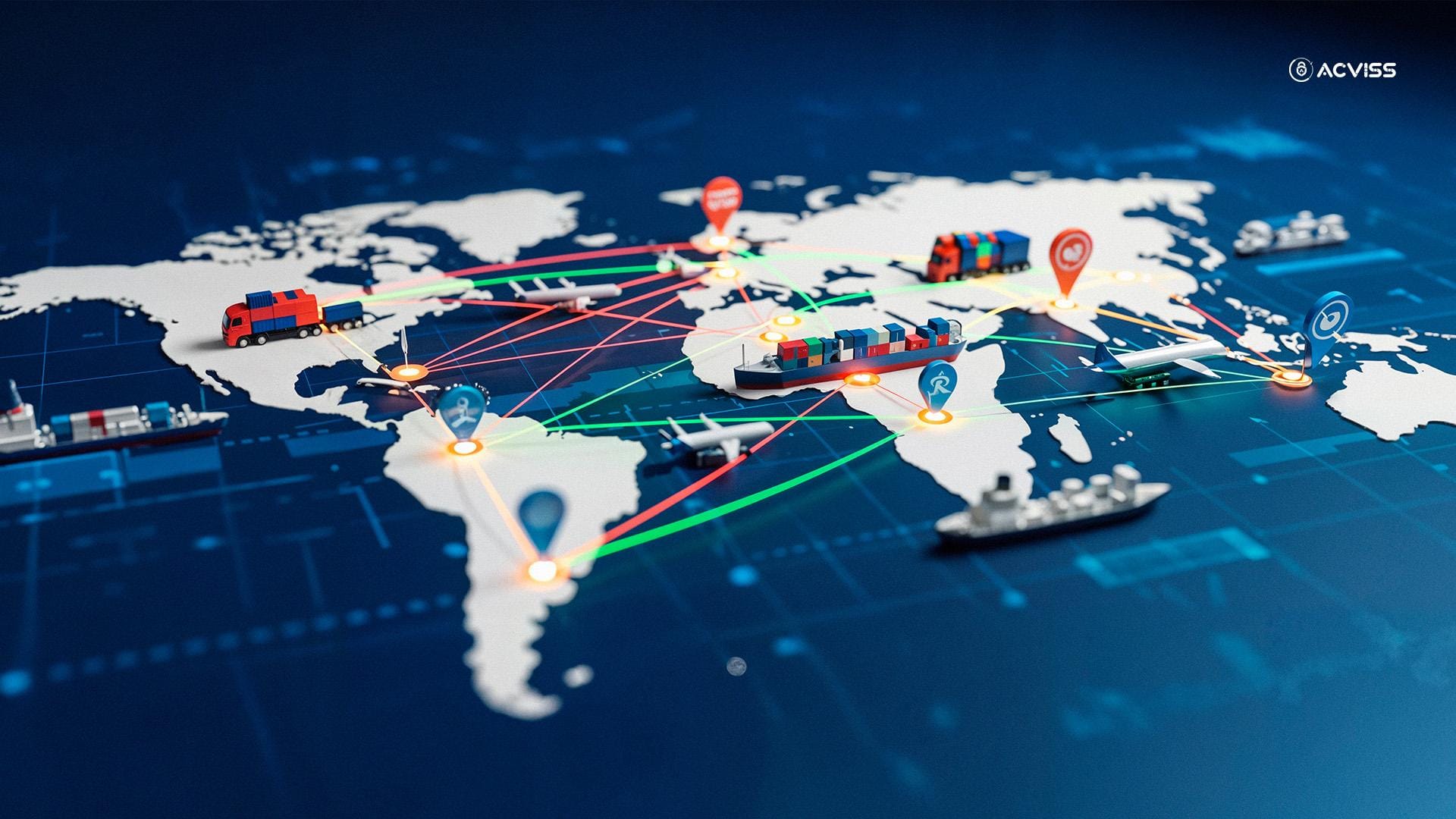Secure QR Codes: The Smartest Choice for Anti-Counterfeiting in Thailand’s Manufacturing Sector

Thailand has long been recognised as a manufacturing powerhouse in Asia, serving as a key hub for industries ranging from automotive and electronics to food processing and pharmaceuticals. Yet, with its growing industrial landscape comes a significant challenge: the proliferation of counterfeit goods. From imitation automotive parts to falsified medicine labels, counterfeiting poses a threat not only to revenue but also to public safety, brand reputation, and trust in the supply chain.
For brands operating in this environment, anti-counterfeiting solutions are no longer optional but an urgent necessity. One technology is rising above the rest in both accessibility and effectiveness: secure QR codes, designed not merely as scanning tools but as robust, non-cloneable authentication and track and trace systems that safeguard businesses and customers alike.
The Counterfeit Challenge in Thailand’s Manufacturing Economy
Thailand’s manufacturing output accounts for a large share of its GDP, positioning it as one of Southeast Asia’s industrial leaders. Yet this very success has made it a prime target for counterfeiters. Fake spare parts, unauthorised pharmaceuticals, and pirated consumer goods flow through parallel markets, often indistinguishable to the untrained eye.
The risks are twofold:
- For consumers, counterfeit goods often pose safety hazards, especially in sectors like food and medicine.
- For brands, the damage extends to financial losses, weakened trademark protection, and erosion of long-term trust.
With the country’s supply chains becoming increasingly digitised, manufacturers are seeking brand protection solutions that address not only IP protection but also consumer confidence. Secure QR codes represent one of the most practical and scalable ways forward.
Why QR Codes, and Why Secure Ones?

At a glance, QR codes appear deceptively simple. They are already a familiar part of Thai consumers’ lives, used for payments, promotions, and logistics. This wide adoption makes them a natural bridge for product verification.
However, the standard QR code, while convenient, is vulnerable. Counterfeiters can replicate it with ease, diluting its credibility as an authentication technology. The game-changer lies in secure, non-cloneable QR codes.
These upgraded codes are engineered with unique identifiers and encrypted properties that cannot be reproduced, even with sophisticated copying techniques. When integrated with advanced anti-counterfeiting technologies, they become powerful tools for brand authentication and consumer trust.
The Role of Non-Cloneable Labels
A non-cloneable label takes the principle of secure QR codes further. Think of it as a digital fingerprint embedded on every product. Unlike traditional codes, which can be copied and pasted onto fake packaging, these labels are tied to a cryptographic backbone.
This ensures:
- Unmatched authenticity: Every scan links directly to a central verification system, leaving no room for duplication.
- Seamless product authentication: Consumers can verify a product instantly, using only a smartphone.
- Traceability throughout the supply chain: Every transaction, from factory floor to retail shelf, can be logged and monitored.
Solutions such as Certify, which deliver unique and non-cloneable codes, exemplify how non-cloneable labels empower customers to confirm genuineness while enabling brands to safeguard their intellectual property.
Building Traceability into the Supply Chain

The strength of secure QR codes lies not only in their ability to verify but also in their role within track and trace programmes. Thailand’s manufacturers are under growing pressure to align with global standards in supply chain management, where product traceability is becoming non-negotiable.
Consider the benefits:
- Transparency: Each product’s journey is logged at every checkpoint, offering complete visibility.
- Compliance: Traceability systems help businesses meet international requirements around safety, sustainability, and IP protection.
- Proactive risk management: If a counterfeit product surfaces, secure codes help quickly identify where the breach occurred.
This is where solutions such as Origin, designed for end-to-end product traceability, come into play. By combining blockchain-backed tracking with secure QR codes, brands gain real-time analytics and supply chain visibility. This creates a shield not just against counterfeiters but also against inefficiencies that cost time and resources.
Beyond Authentication: Empowering Brand and Consumer Relationships
Anti-counterfeiting should not be seen purely as a defensive mechanism. Secure QR codes unlock new opportunities for brands to build trust and engagement with consumers.
Every scan can deliver:
- Instant product authentication: A simple reassurance that builds customer confidence.
- Brand verification: Access to information about manufacturing origin, quality standards, and warranty coverage.
- Personalised engagement: Redirecting users to loyalty programmes, educational campaigns, or post-purchase services.
This dual role, protective and interactive, transforms what was once just a square code into a powerful connector between brand and buyer. For Thai manufacturers competing on both quality and customer experience, this becomes a critical advantage.
How Secure QR Codes Strengthen IP and Trademark Protection

Counterfeiting is, at its heart, an attack on intellectual property. No matter how innovative a product may be, if its trademark can be forged, its value is at risk.
Secure QR codes act as a line of defence for IP protection by ensuring:
- Every genuine product carries a tamper-proof identity.
- Trademarked designs and packaging are backed by a verifiable code that counterfeiters cannot easily reproduce.
- Brands maintain legal standing in pursuing counterfeit cases, supported by verifiable digital evidence of product authenticity.
In this way, secure codes work hand-in-hand with broader trademark protection strategies, serving as a modern complement to traditional legal safeguards.
Looking Ahead: The Future of Brand Protection in Thailand
As Thailand advances towards becoming a digitally empowered manufacturing economy, the role of anti-counterfeiting solutions will only grow in importance. Governments, trade bodies, and global supply chain partners are increasingly demanding track and trace systems, not just for compliance but as a foundation of trust.
The next frontier lies in combining secure QR codes with AI-driven insights, blockchain-led traceability, and predictive analytics. Together, these brand protection technologies can identify threats before they escalate, streamline regulatory reporting, and enhance customer loyalty.
Manufacturers that act early stand to gain the most, not just by safeguarding their brands today but by future-proofing their operations against evolving counterfeit tactics.
Conclusion
Thailand’s manufacturing sector sits at a crossroads. On one hand, it faces the persistent shadow of counterfeiting. On the other hand, it has the opportunity to lead in adopting cutting-edge brand protection solutions that set new benchmarks for authenticity and trust.
Secure, non-cloneable QR codes are proving to be the smartest choice for this journey. When combined with traceability programmes such as Origin and authentication systems like Certify, they create a powerful ecosystem where brands are protected, consumers feel reassured, and counterfeiters are left with no room to manoeuvre.
For businesses in Thailand, the question is no longer whether to adopt such solutions, but how quickly they can integrate them.
Interested to learn more about how secure QR codes can protect your brand? Get in touch with us today.
